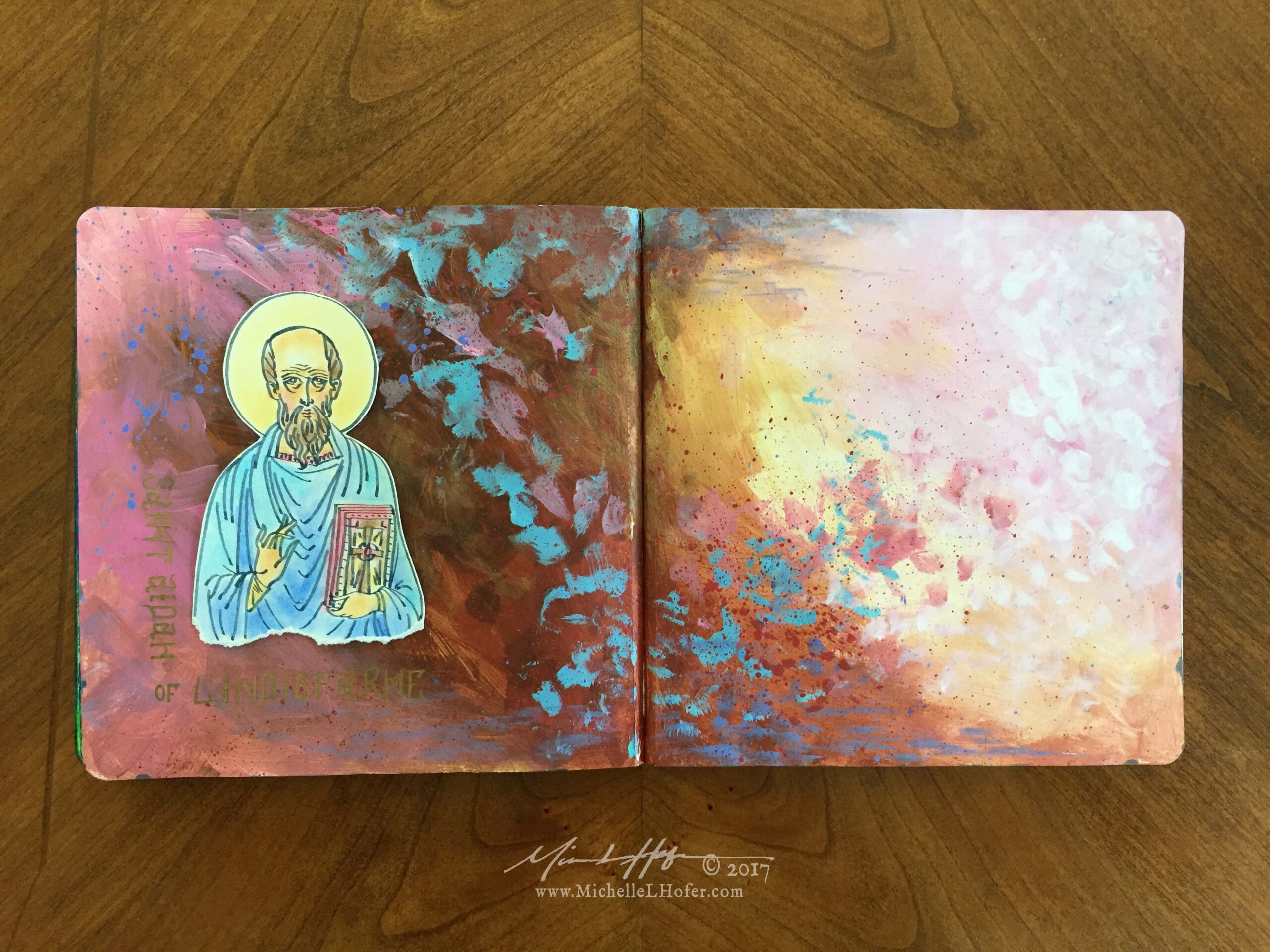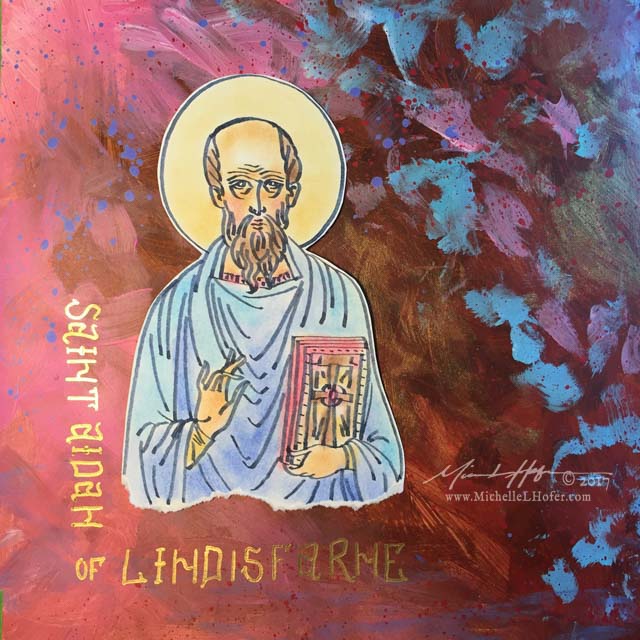Saint Aidan of Lindisfarne

The year was 616, and Columcille’s monastery at Iona has grown in acclaim and importance. The son of a overthrown English monarch has just arrived seeking refuge. Oswald, heir to the throne of Northumbria in England slips into the quiet world of monks, prayer, and study. Before long, Oswald finds himself embracing the faith of the Christians working and living on Iona. He asks to be baptized and determines that this Christ whom he now confesses must be brought back to his own people, the people of Northumbria. He sets out, ready to reclaim his father’s throne and with the assistance of monks from Iona, win the souls of the Northumbrians for God. But Corman, the monk heading up the ministry under King Oswald’s direction, heads back to Iona in frustration and discouragement claiming the Northumbrians to be “ungovernable and of an obstinate and barbarous temperament”. He had had enough of these stubborn pagans and was giving up, calling it quits.
Wishing to determine God’s will in the matter and how to proceed, a meeting is held among the brothers back on Iona. After listening to all Corman has shared, one monk stands to speak:
Brother, it seems to me that you were too severe on your ignorant hearers. You should have followed the practices of the Apostles, and begun by giving them the milk of simpler teaching, and gradually nourished them with the word of God until they were capable of greater perfection and able to follow the loftier precepts of Christ. – Saint Aidan
And with this one statement, Brother Aidan is elected to go in Corman’s stead.
Aidan arrives and is greeted by Oswald, excited and anxious to give this another go and finally bring the gospel to his kingdom. The two become fast friends. Oswald and his men are out assisting Aidan translating for the people until Aidan learns the strange English tongue. An unlikely friendship develops between this king and this monk. Roman missionaries long had a habit of arriving in a locale, cozying up to a king with offerings and convoluted promises – shameful flattery and bribes. This is not a tactic of the Celtic missionaries.
Aidan was given the lovely island of Lindisfarne which later came to be known in England as Holy Island. Here he sets up a monastery and launches his missionary work from this peaceful and isolated place. Aidan’s monastery grows in influence and becomes the headquarters of the mission work among the Anglo-Saxon people across England.
Aidan brings the gospel gently, diligently and lovingly to the Northumbrians. His practice is to walk the paths and roadways of the land greeting everyone he meets, striking up friendly conversation and discussing the faith when opportunities presents themselves. Aidan followed in the Celtic tradition of seeing the good in everyone, the potential to become followers of Christ no matter how barbaric they were. When the king gives him a horse so he might not have to do so much walking, Aidan quickly gives it away in his desire to be on the same level as the people he meets.
Aidan followed in the Celtic tradition of seeing the good in everyone, the potential to become followers of Christ no matter how barbaric they were. If only the gospel had been shared across the world and throughout the ages in similar fashion! I leave you with a story from John Philip Newell:
Many years ago I was delivering a talk in Ottawa, Ontario, on some of the main themes of the prologue to St. John’s Gospel, and especially the words “the Light that enlightens every person coming into the world” (John 1:9, adapted). In attendance that evening was a Canadian Mohawk elder. He had been invited to be there to make observations about the parallels between his First Nations spirituality and the spirituality of the Celtic world. At the end of my talk he stood with tears in his eyes and said, “As I have been listening to these themes, I have been wondering where I would be tonight. I have been wondering where my people would be tonight. And I have been wondering where we would be as a Western world tonight if the mission that had come to us from Europe centuries ago had come expecting to find light in us. – John Philip Newell
**the title of Apostle to England is held in some Christian circles by Augustine of Canterbury, a cowardly librarian from Rome sent by Pope Gregory to England after the pope saw a group of “fine”-looking Saxon slaves for sale in Rome. Augustine’s miraculous accomplishment was the “baptism” of 10,000 Saxon pagans in one day. Truth be told, the large crowd was herded into a lake by the army of the king whom Augustine had cozied up to. Hardly a story of mass conversion and reminiscent of accounts concerning the conversion of the Native Americans in the Americas.
Book of Saints Project
An ONGOING MODERN RECORD of CHRIST FOLLOWERS THROUGHOUT THE AGES


